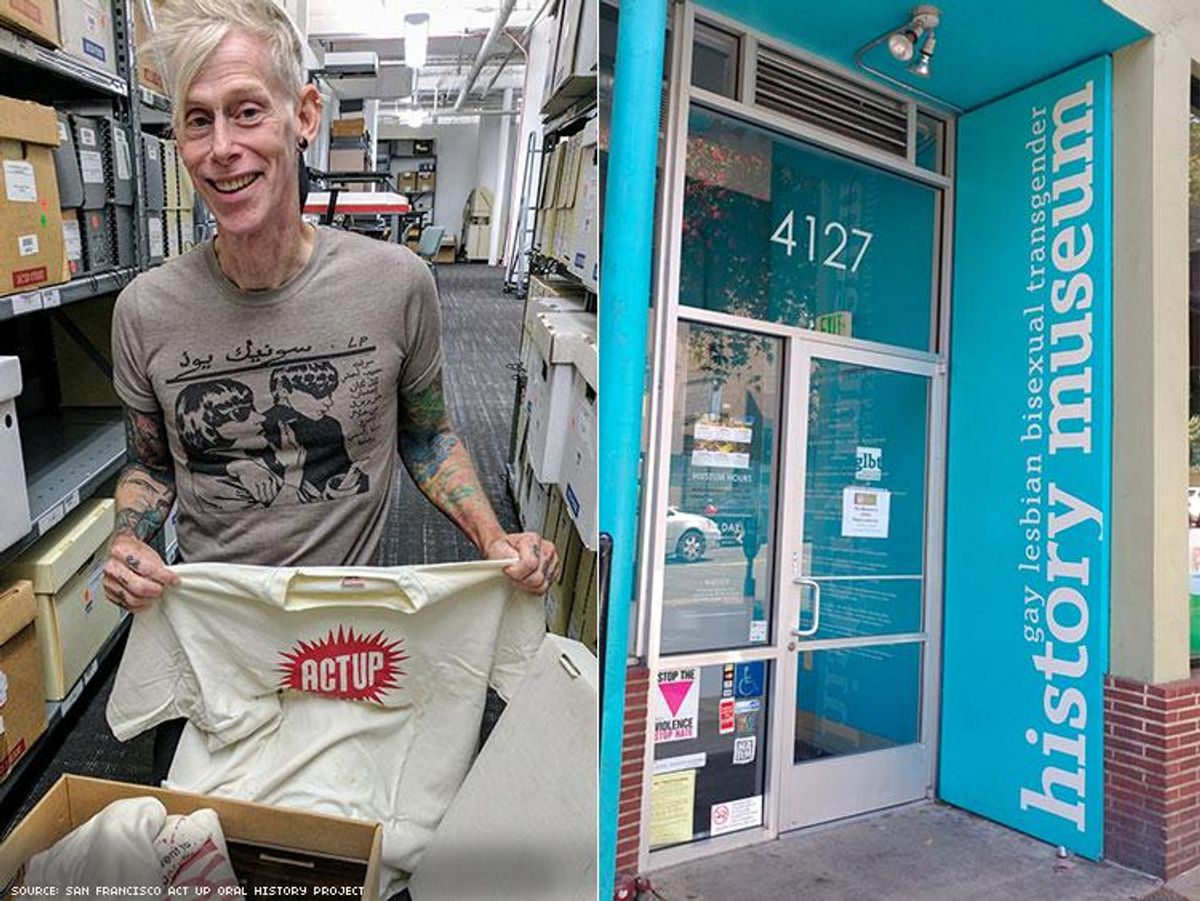You can thank Donald Trump for one thing -- he's partly responsible for saving the stories of San Francisco's ACT UP members, who secured crucial HIV funding in the '80s and '90s through confrontational protests, marches, and sit-ins.
It was Trump's dubious election last November that gave Yale PhD history student Joey Plaster the idea to create an oral history project that will preserve the stories of these AIDS heroes, and help train the next generation of activists. When completed in 2019, the 40 or so videotaped oral histories -- conducted by young historians like Plaster -- will be displayed at San Francisco's GLBT Museum, housed on a website, and possibly appear in a documentary.
"I was in a certain amount of shock [after November], but when that wore off I was determined to do something," Plaster tells The Advocate.
Living in New York during the election and its immediate aftermath, Plaster says he was personally affected by the ACT UP imagery at protests, including the famous "Silence=Death" posters. Plaster also noticed how ACT UP veterans were helping train young people in direct action protesting, and suddenly the idea came to him -- older activists relaying their resistance stories to younger activists. The project would both save these stories for posterity and also prepare the next generation for people like Trump and Pence.
"The goal is also to create connections and conversations between ACT UP veterans in San Francisco and younger activists who are part of [new] social justice organizations," Plaster says. "Creating an intergenerational conversation so that there's a way to pass down this legacy of activist culture to a new generation."
Plaster has already conducted seven interviews with activists, and is in the midst of training the young people -- all under the age of 30 -- who will take on many of the remaining interviews. Finding Reagan-era ACT UP vets won't be difficult, Plaster said; he's already identified 60 people who want to talk.
One person Plaster interviewed segued from advocacy to nursing, specializing in HIV.
"She started working as a nurse just as combination therapies were introduced and saw people become well and get out of their hospital beds," Plaster says. "Now she's able to approach her clients who recently seroconverted and tell them they're going to be able to live long lives. She definitely felt like ACT UP and the direct action movement was in large part responsible for making that possible."
If you'd like to participate in the San Francisco ACT UP Oral History project, click here.



















































































